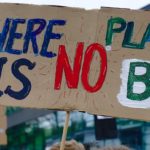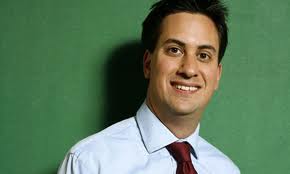Nothing new under the sun in Cancún
World Development Movement press officer Kate Blagojevic writes from the climate summit in Cancún, Mexico. Follow her on Twitter at @wdmnews.
On the last day of the talks at Copenhagen, I got up at 5 am to go and hand out a press release outside the conference centre in the snow. The release contained information that the World Development Movement had pieced together which built up to a catalogue of bribes and bullying tactics used by developed countries to buy the support of developing countries for the ‘Copenhagen Accord’.
A year later, in the sunshine of Cancún, and thanks to the Wikileaks chronicles, we see that our analysis was right on the money.
We are certainly not surprised at the revelations; we have been monitoring trade negotiations for years. And these are exactly the kinds of tactics that take place in the World Trade Organisation, where rich countries attempt to buy off poorer countries in return for singing up to a deal that hurts the poorest and benefits the rich. Sound familiar?
We don’t have leaked cables, more listening at the right doors with keen ears. These are a few examples from last year:
— Rich countries sought to bribe countries into signing unfair long term agreements with offers of short term money up front. Lesotho, head of the Least Developed Countries, was been told decisions on extension of $7 million in aid would be decided depending on its cooperation.
— Pacific island nation Palau was told negotiations on a funding package with the US hung in the balance, so it should support the US’s emission reduction target.
— Rich countries talked up their $10 billion in short-term finance. This money is being channelled through the World Bank, and so the Bank’s paymasters in rich countries can choose which countries will receive the money. The UK told Bolivia its eligibility for funding could be determined by its cooperation.
Along with Ecuador, Bolivia ended up having $3 million dollars of climate finance withdrawn by the US in April 2010 as a result of refusing to sign the Copenhagen Accord. Bolivia’s UN Ambassador, Pablo Solon, told a press conference yesterday morning that the Wikileaks revelations came as no surprise to his delegation.
In Denmark last year, we heard a familiar refrain of ‘developing countries are blocking the talks’. Rich countries use their greater access to the media to spin the stalling of negotiations usually as being due to developing countries raising pointless concerns
Ed Miliband, then Secretary of State for Energy and Climate Change, was reported saying: “Things are getting held up by procedural wrangling. People can kill this agreement with process arguments. It will be tragedy if we cannot reach an agreement on substance, but it will be a farce if we cannot agree on process.”
This is intentionally meant to mislead. The tragedy is the real reason for the stalling of talks is the lack of any serious commitments to reduce emissions by rich countries.
In Copenhagen, there was a ‘Danish text’ and this year there is a ‘Chair’s text’. But what’s in a name? Not much: again it’s a document that sprung out of nowhere, independent of the UN process, that is suddenly being pushed onto the Conference.
It ignores any progress that has been made in negotiations earlier in the year, especially and predictably that which was good for developing countries. It’s unclear which text will be negotiated on, as there are many different versions flying around.
It’s clear we can expect much the same rich-country scams in Cancún as we saw in Copenhagen. WDM will be following this, and trying in some way to shape the media agenda, though our work is made all the more difficult by another repeat performance – the civil society shut-out.
Last year was a complete debacle, with civil society almost being completely locked out of the process, and rumours of NGO personnel sleeping in cupboards in an attempt to stay inside.
In Cancún, already, there is angst over who will be allowed access to the Moon Palace, where the negotiations are taking place. It is already a mission to get there and it will be easy to block the roads so that civil society aren’t allowed within miles of the Moon.
With hundreds of police with very big and scary guns already in place, it will be a daunting task for anyone who wants to face down the police this year.
That’s what we have to look forward to just to get to the media centre on Friday. Like Copenhagen, this is an event designed to ensure the minimum of dissent from poor countries’ negotiators on the inside, or their supporters out here in the sun.




Hi po-jo
without getting into who’s version is the closest to reality on the ground
Oxfam is a charity & has in the past run into serious issue regarding involvement in politics.
hello, the word from Oxfam on Cancunis positive and hopeful but others, like in this blog, are v negative. Why do you think there’s such a big gap?